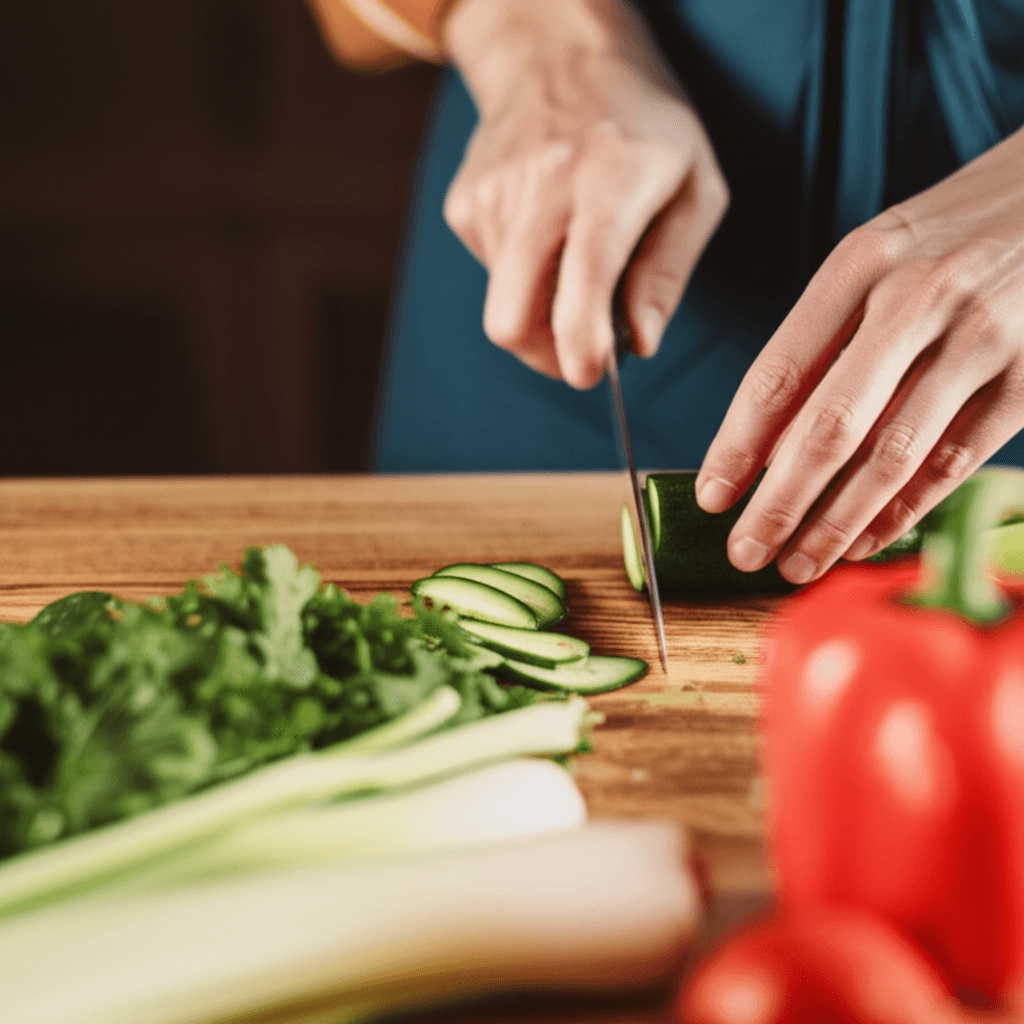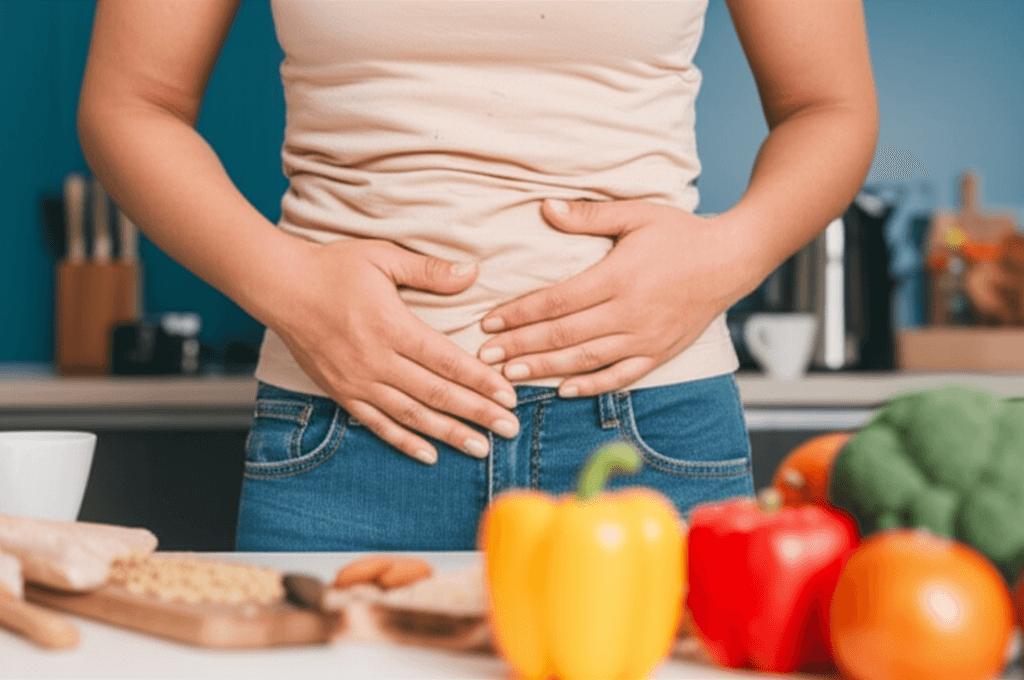The frustrating sensation of bloating after a seemingly healthy meal is a common experience, affecting a significant portion of the population. This discomfort, often characterized by a full or swollen feeling in the abdomen, accompanied by gas or burping, can leave you wondering if your nutritious choices are actually working against you. While bloating can sometimes be a sign of an underlying health condition, most cases are avoidable and stem from dietary and lifestyle factors, even when consuming foods typically considered good for you.
This article delves into the reasons why your healthy meals might be causing digestive distress and provides actionable strategies to help you alleviate and prevent bloating, allowing you to enjoy your food without the uncomfortable aftermath.

Understanding the Roots of Bloating
Bloating primarily occurs when there’s an accumulation of air or gas in your gastrointestinal (GI) tract. This can happen for several reasons, from how you eat to the specific components of your diet.
Gas Production and Swallowed Air
One of the most common culprits behind bloating is the natural gas produced during digestion. When your body breaks down food, especially certain carbohydrates, it produces gas. Additionally, you can swallow air when eating or drinking, which then enters your GI tract. This swallowed air, combined with digestive gases, can lead to the feeling of fullness and pressure.
Digestive Rate and Food Fermentation
The speed at which food moves through your digestive system also plays a role. Foods that are slow to digest can linger in the intestinal tract, leading to fermentation and gas buildup. This process can cause the feeling of being inflated like a balloon.

Dietary Culprits in Healthy Meals
While many foods are nutritious, some “healthy” options can paradoxically contribute to bloating due to their specific compounds or how your body processes them.
High-Fiber Foods
Fiber is essential for digestive health, regulating blood sugar, and promoting regular bowel movements. However, consuming too much fiber, or increasing intake too quickly, can lead to excessive gas production and bloating for some individuals. This is particularly true for certain types of fiber.
- Legumes: Beans, lentils, and peas are packed with protein and fiber, but they contain oligosaccharides, sugars that can be difficult to break down and ferment in the gut, producing gas.
- Cruciferous Vegetables: Broccoli, cauliflower, Brussels sprouts, and cabbage are nutrient-dense but contain raffinose, a complex sugar that can be challenging to digest, leading to gas and bloating. Cooking these vegetables can sometimes make them easier to digest.
- Whole Grains: While beneficial, whole grains like wheat, rye, and barley contain fiber and other carbohydrates that can cause gas and bloating in sensitive individuals.
High-FODMAP Foods
FODMAPs (fermentable oligosaccharides, disaccharides, monosaccharides, and polyols) are specific types of carbohydrates that can be difficult for some people to digest, especially those with Irritable Bowel Syndrome (IBS). These can ferment in the colon, leading to gas, cramping, and bloating. Many healthy foods fall into this category:
- Fruits: Apples, pears, cherries, and apricots contain fructose and sorbitol, which can be troublesome. Avocados are also high in sorbitol.
- Onions and Garlic: These common flavor enhancers contain fructans, soluble fibers that can cause significant digestive discomfort. Cooking them may help reduce these effects.
- Sugar Alcohols: Found in many sugar-free or low-carb products (e.g., xylitol, sorbitol, mannitol), these can ferment in the gut and lead to gas and bloating, even in small amounts.
Food Intolerances and Sensitivities
Bloating is a common symptom of food intolerances or allergies, where the digestive system struggles to process specific foods.
- Lactose Intolerance: Many adults lose the ability to digest lactose, the sugar in dairy products, leading to gas and bloating after consuming milk, cheese, or yogurt.
- Gluten Sensitivity: For individuals with celiac disease or non-celiac gluten sensitivity, gluten (found in wheat, barley, and rye) can trigger an immune response that damages the intestinal wall and causes bloating, among other symptoms.

Lifestyle Factors Contributing to Bloating
Beyond specific foods, certain eating habits and lifestyle choices can significantly impact digestive comfort.
Eating Habits
- Eating Too Quickly: Rushing meals or talking while eating can cause you to swallow excess air, which then becomes trapped in your digestive tract and leads to bloating.
- Drinking Carbonated Beverages: Sodas, sparkling water, and beer contain carbon dioxide gas, which can accumulate in the GI tract.
- Chewing Gum or Sucking on Hard Candy: These activities increase the amount of air you swallow.
- Large Portions: Overeating can overwhelm your digestive system, causing food to sit longer and ferment, leading to bloating.
Other Factors
- Dehydration: Not drinking enough water can lead to constipation, which contributes to bloating. Paradoxically, drinking a lot of water at once can also cause temporary bloating.
- Lack of Exercise: Physical inactivity can slow down digestion and hinder the release of trapped gas.
- Stress: Psychological stress can cause gastrointestinal distress and contribute to bloating.
- Hormonal Changes: For women, hormonal fluctuations, such as those around menstruation, can cause water retention and bloating.
- Weight Gain: Recent weight gain, particularly around the belly, can reduce the abdominal volume available for normal digestive processes, making even regular meals feel bloating.

Effective Strategies to Prevent and Alleviate Bloating
Feeling bloated doesn’t mean you have to give up healthy eating. By understanding your body and making a few adjustments, you can significantly reduce discomfort.
Adjusting Your Diet Thoughtfully
- Manage Fiber Intake: While fiber is crucial, if you’re experiencing bloating, consider moderating your intake or introducing high-fiber foods gradually to allow your digestive system to adapt. Soaking beans and lentils before cooking can make them easier to digest. Cooking cruciferous vegetables instead of eating them raw can also help.
- Identify Food Intolerances: Keep a food diary to track what you eat and any symptoms you experience. This can help you identify trigger foods. If you suspect a lactose intolerance, try lactose-free alternatives. For FODMAP sensitivities, a low-FODMAP elimination diet, ideally with guidance from a dietitian, can be beneficial.
- Limit Bloat-Inducing Sugars: Be mindful of sugar alcohols (sorbitol, xylitol, etc.) in processed foods and artificial sweeteners.
- Stay Hydrated: Drink plenty of still water throughout the day to support digestion and prevent constipation.
Optimizing Eating Habits
- Eat Mindfully and Slowly: Take your time with meals, chewing food thoroughly. This reduces the amount of air you swallow and aids in digestion.
- Smaller, More Frequent Meals: Instead of large, heavy meals, consider eating smaller portions more often to avoid overwhelming your digestive system.
- Avoid Carbonated Drinks: Opt for still water, herbal teas, or fruit-flavored water instead of fizzy beverages.
- Limit Air-Swallowing Habits: Reduce gum chewing and avoid drinking through straws.
Lifestyle Adjustments for Digestive Health
- Stay Active: Regular exercise, even a light walk after meals, can help move gas through your digestive tract and reduce bloating. Exercise also helps manage stress, which can impact gut health.
- Manage Stress: Techniques like meditation, yoga, or deep breathing can help reduce stress and its impact on your digestive system.
- Consider Probiotics: Some research suggests that probiotic supplements or probiotic-rich foods (like yogurt, sauerkraut) may help reduce bloating by balancing gut bacteria.
- Herbal Remedies: Certain herbal teas, such as peppermint, chamomile, ginger, fennel, and turmeric, can aid digestion and help process gas. Peppermint oil capsules are also known for their antispasmodic properties.

When to Seek Medical Advice
While most cases of bloating are not serious, persistent, severe, or painful bloating, or bloating accompanied by other concerning symptoms (like unexplained weight loss, changes in bowel habits, or blood in stool), warrants a consultation with a healthcare professional. Bloating can sometimes indicate underlying conditions such as Irritable Bowel Syndrome (IBS), Small Intestinal Bacterial Overgrowth (SIBO), celiac disease, or other digestive disorders.
By carefully observing your body’s reactions to different foods and integrating mindful eating practices and lifestyle adjustments, you can often mitigate the discomfort of bloating after even the healthiest of meals.







